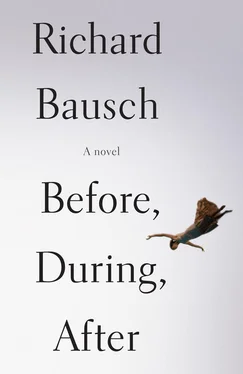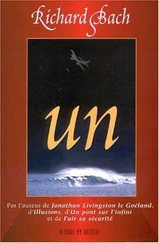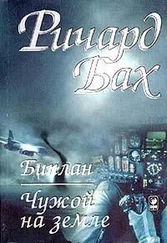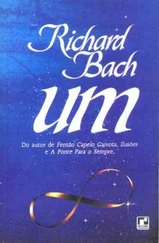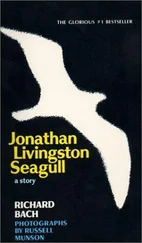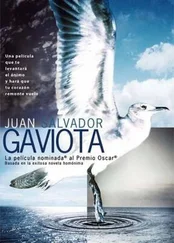No one spoke to her.
Back in the room, she tried to sleep and couldn’t. She wrote a few lines to Iris, and more to Faulk, but then crumpled the pages and threw them away. The phrases were fraught with complaining, and the complaints were colored by what was really the matter. It looked absurd, was absurd and selfish to be lamenting about being stuck in paradise, and if she kept the real situation to herself while complaining about being here, that was how it would seem.
The night wore on. Toward dawn, she woke sitting in her chair, her neck sore and stiff, both her hands asleep. She paced and swung her arms and rubbed her own numb fingers along her thighs and finally got into the bed under the sheets and lay staring at the white ceiling or at the flicker of lights out in the dark reaches over the sea. At last, sleep came, a dream that she was home, and there was nothing slightly nightmarish about it, yet when she woke, fear roiled in her stomach. Turning over on her side in the softly rising light, she thought about how far she had come from where she had just dreamed she was. There would be no more sleep in this dawn.
She went into the bathroom and looked at herself in the light. Amazingly, the sore places were not bruising. She saw herself, tanned, slim, no sign of violence showing. Her jaw was sore.
The hours of the morning were rainy with a slight chill in the air, though by early afternoon the temperature had risen. The waves thundered continually on the beach. She had gone back to bed, and she lay listening to the sounds. She did not even get up to eat.
She slept more, not aware of it as sleep until she opened her eyes and saw that the light was different. She turned and looked at the entrance of the balcony, the railing, and the ocean. She closed her eyes, dozed, and awoke to the rhythmic pounding of the surf and the fading light.
The day passed like this, and Constance stayed away. Constance was leaving her alone.
Natasha couldn’t think now what they might find to talk about. And then of course she knew. They would talk about the attacks, the planes, the killings, and the backdrop of it all would be what Constance had seen of her and Nicholas Duego on the beach. It would be there, unspoken, the mud on the floor, as Iris used to say. Constance would never be able to accept that nothing had happened; and what she did believe about it was too far from the actuality to contemplate without anger.
There were little bottles of liquor inside the minibar. Constance had opened the one in her room on the first night. Natasha opened hers now and drank four of the bottles, two whiskeys, a brandy, and a rum, sitting up in the bed with the blankets over her knees. When she was finished with the rum, she stood, a little shakily, moved to the window, and closed the curtain across the entrance to the balcony, and then got back in bed.
It was night when she woke, still woozy from the drinks and with the beginning of a headache. Her lower back hurt, but she was sure this was from lying down so long. She lay there in the dark, suffering it, too near sleep to rise, and waiting for the drifting off that she thought would come. She could still feel the ghost-pressure of Nicholas Duego between her legs and along her hips, and she thought of finding some way to be insensible until that was gone, until it would stop. She got up and drank the last two little bottles, a gin and a vodka.
Faulk called in the morning. He was back in Memphis and would be looking at houses. “I’m just checking out places we can go see together,” he said.
She felt nothing. “You choose,” she said. “Really, I mean it, honey. I’m sure it’ll be wonderful. I just want to be with you. You decide.”
“Well, I’m not going to do that. If I see something I think you’ll like I’ll ask them to hold it until you get here. Baby, are you all right?”
She lost composure for a few seconds.
“Natasha?”
“No, I’m not all right. I want to be home. I hate this.”
“I know,” he said. “I know.”
Later, she called Iris, who said that she wanted them to have a place of their own, nearby. She was healing fast from her fall. She sounded harried and stressed and worried about making everything perfect for Natasha’s return.
“But I’m really feeling stronger every day,” she went on. There was a quaver in her voice. “I’m worried about you. You don’t sound right.”
“I’m so tired of being here,” Natasha got out.
She did not leave the room on this day, either. The hours passed. She bathed and cared for herself but did not eat. She could not read anything in the books she had brought, because her powers of concentration were broken. And when she could concentrate, she worried about being ambushed by something in the words. She felt this as a kind of fracturing of her deepest self.
Late that night she went on another walk, this time far along the beach, believing herself to be facing down the fear, heading straight at it, toward the lights that shone there. She wondered if it was Kingston, and then thought of Duego somewhere in that low sparkle far off. She went into the brush and picked up a heavy stone the size of a baseball. The walk back was hurried and aching, the muscles of her legs cramping, and there was a raggedness to every breath, a rasping that caught and seemed about to choke her. Near the resort, a man stepped out from the path leading there. She stopped and held the stone as if setting herself to throw it. “Keep away from me,” she said.
He was gaunt, wasted looking, all bone, and his eyes looked too big for his head. He stared at her, standing very still. “Not moving, as you see.”
“Stay back.”
His movement was shaky, and she saw that he was very drunk. He staggered slowly by, as if meaning to circle her, but then went on to the water and in, where he simply waited as if expecting to be knocked over by the waves. Mrs. Ratzibungen came down the path and went past her. “Harmless,” she said. “Poor creatuh. It is Lawton. My former friend. You remember. Please. He is drunk. He vill not hurt you.”
Natasha dropped the stone in the sand and started toward the resort. Nothing would change, and this was now the way life would be. Full of unreasonable fear all the time. She went on, pushing through the sand, stumbling in it. The night was as hot as the day had been.
Constance was sitting in one of the chairs on the porch. She had a large flower in her lap. “Ratzi just went in to get us a rum collins. We saw Mrs. Ratzibungen’s old boyfriend. The one who’s been drinking himself to death the last twenty-five years. When we saw you coming, Ratzi had the idea of the rum collinses.”
Natasha looked toward the entrance to the lobby.
“Sit,” Constance said. “Come on.”
Ratzi approached, carrying the drinks. “On the house,” he said.
His mother came back up from the beach, looking tired and beset, strands of hair loose on her forehead. “He vent home. I vill check on him later.”
“Does he know what’s happened?” Constance asked.
Mrs. Ratzibungen said, “I vill be ruined. Kaput. But I feel zo bad for you Americans.”
“Sit,” Constance repeated to Natasha.
Natasha, feeling the obligation, sat down.
“Here’s your drink.” Ratzi said. “On the house.”
“No, thank you.”
“Vee are ruined. Lawton just here drunk, sick. Und you buy drinks.”
“My mother is an alarmist.”
“Look at zuh books, you think I am alarmist. You don’t look at zuh books. Zuh Gleister people vill close me down.”
Ratzi said something harsh sounding to her in German, sipping the drink Natasha had refused. Then he looked over at Constance. “The Gleister Corporation owns the buildings and the grounds. We own the franchise. And we also have another place, a restaurant in Kingston. Doing very well. Quite well. Even now. I do look at those books.” He turned and said something else in the other language.
Читать дальше
